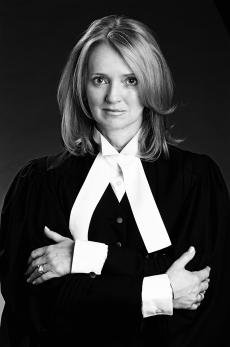 A classic problem that frequently occurs in family law disputes is whether the funds given to a married adult child are a gift or a loan. In Rivas v. Milionis 2018 ONCA 845 the Ontario Court of Appeal upheld a judge’s order that found that a mortgage placed by parents on their married daughter’s home did not secure a legitimate debt to the parents, as the monies advanced to the couple were a gift.
A classic problem that frequently occurs in family law disputes is whether the funds given to a married adult child are a gift or a loan. In Rivas v. Milionis 2018 ONCA 845 the Ontario Court of Appeal upheld a judge’s order that found that a mortgage placed by parents on their married daughter’s home did not secure a legitimate debt to the parents, as the monies advanced to the couple were a gift.
The couple purchased their family home in 2000, financing the purchase with a bank mortgage. In 2004 they encountered financial problems and the wife’s parents provided financial assistance and later agreed to pay off their mortgage, thus alleviating their tight financial circumstances. Discussions between the wife and her parents took place in 2004. The mortgage was discharged in February 2005 and in July 2005 the wife’s parents placed a new mortgage on the family home.
The husband testified that he was baffled when his wife’s parents asked them to execute a mortgage in their favour, but he realized that resisting their overture would cause conflict in the family, so he signed the mortgage documents. He also said that he cooperated to keep his wife happy and relied on her assurance that the house would always be theirs.
All was well until ten years later, when the couple separated and the wife’s parents sought to enforce their mortgage security. The court referred to the presumption of a resulting trust in a situation where there is a transfer of property from a parent to an adult child. The presumption is that property transferred from a parent to an adult child is not a gift but is held in trust by the adult child for his or her parent. Pecore v. Pecore, 2007 SCC 17. That presumption can, of course, be rebutted.
It is noteworthy that the court at first instance did not hear oral evidence, thus, none of the parties were cross-examined. The judge ruled:
“I do not accept Tasos’ [the wife’s father] evidence that the many transfers of money were loans. He stated that each of the transfers constituted a loan however, as noted earlier, there was no evidence that the parents at the very least told their daughter and son-in-law that those transfers were loans or that he communicated the loan terms of each transfer to them. I accept the husband’s evidence that the parents never suggested to him until June or July 2005 that the transfers made from 2000 to 2005 were loans.”
An important factor in the judge’s decision was the “mortgage-freedom” celebration that the parties testified about when the conventional mortgage was paid off by the wife’s parents in 2005.
Parents who generously support their adult children must understand that it is too late after the fact to suggest that monies provided are a loan, unless there is evidence, such as a promissory note, signed by the parties at the time of the advance of funds, with each party having independent legal advice.
Lawdiva aka Georgialee Lang
 People make mistakes and judges are people too…In Wang v. Sigouin 2017 BCCA 372 the parties married in 1993 and separated in 2015. The couple lived with their two children in Shanghai but had real estate in Vancouver, including a two bedroom apartment with a tenant and a one-bedroom unit that was available for family use when visiting Vancouver.
People make mistakes and judges are people too…In Wang v. Sigouin 2017 BCCA 372 the parties married in 1993 and separated in 2015. The couple lived with their two children in Shanghai but had real estate in Vancouver, including a two bedroom apartment with a tenant and a one-bedroom unit that was available for family use when visiting Vancouver. It is not unusual, especially in family law cases, to have a judge conclude a hearing with the phrase “I will seize myself of this case”. What that means is that the judge has decided that it is reasonable, necessary, or simply prudent for him or her to hear all future court applications regarding the case.
It is not unusual, especially in family law cases, to have a judge conclude a hearing with the phrase “I will seize myself of this case”. What that means is that the judge has decided that it is reasonable, necessary, or simply prudent for him or her to hear all future court applications regarding the case.  If you are a litigator in Canada you should know the name “Joe Groia”. He is a masterful legal advocate from Ontario who specializes in securities law. His prominence in the legal profession was capped this week when Groia v. The Law Society of Upper Canada (now the Law Society of Ontario) was argued before the Supreme Court of Canada. (Law Society of Upper Canada v. Joseph Peter Paul Groia, 2012 ONLSHP 94)
If you are a litigator in Canada you should know the name “Joe Groia”. He is a masterful legal advocate from Ontario who specializes in securities law. His prominence in the legal profession was capped this week when Groia v. The Law Society of Upper Canada (now the Law Society of Ontario) was argued before the Supreme Court of Canada. (Law Society of Upper Canada v. Joseph Peter Paul Groia, 2012 ONLSHP 94)  While President Trump’s opponent are having a large-scale melt-down over his recent appointments, perhaps the most consequential of these appointments is his nomination of Justice Neil Grosuch to replace the late Justice Scalia on the United States Supreme Court.
While President Trump’s opponent are having a large-scale melt-down over his recent appointments, perhaps the most consequential of these appointments is his nomination of Justice Neil Grosuch to replace the late Justice Scalia on the United States Supreme Court. This past weekend I saw Bob Dylan perform in concert in Indio, California, a musical extravaganza that featured Dylan, Neil Young, the Rolling Stones, The Who, and Paul McCartney, but it was Dylan’s weekend, as he was feted by his fellow artists for his Nobel Prize in Literature. He joins luminaries such as Jean Paul Sartre, Alice Munro, Doris Lessing, John Steinbeck, Albert Camus, Boris Pasternak, Harold Pinter, Toni Morrison, and many others, 113 awarded thus far.
This past weekend I saw Bob Dylan perform in concert in Indio, California, a musical extravaganza that featured Dylan, Neil Young, the Rolling Stones, The Who, and Paul McCartney, but it was Dylan’s weekend, as he was feted by his fellow artists for his Nobel Prize in Literature. He joins luminaries such as Jean Paul Sartre, Alice Munro, Doris Lessing, John Steinbeck, Albert Camus, Boris Pasternak, Harold Pinter, Toni Morrison, and many others, 113 awarded thus far. Canada, the true north strong and free, is the envy of the world and one of its most valuable assets is its citizenship. Before the Harper government left office they made sweeping changes to Canada’s Immigration Act, making it more difficult to qualify for citizenship. Meeting great opposition however, the Conservative government did not tackle the phenomenon of “birth tourism”, a subject that remains highly controversial, particularly in Vancouver.
Canada, the true north strong and free, is the envy of the world and one of its most valuable assets is its citizenship. Before the Harper government left office they made sweeping changes to Canada’s Immigration Act, making it more difficult to qualify for citizenship. Meeting great opposition however, the Conservative government did not tackle the phenomenon of “birth tourism”, a subject that remains highly controversial, particularly in Vancouver. Whereas, on or about the night prior to Christmas, there did occur at a
Whereas, on or about the night prior to Christmas, there did occur at a